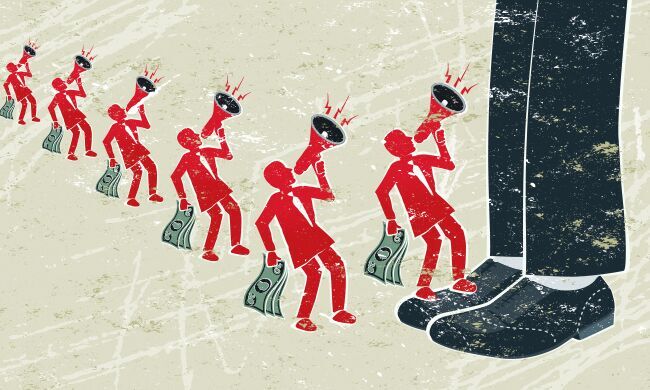The New York Times has been in a dither lately over the efforts of Jonathan Soros (grandson of multi-billionaire George) to spend exorbitant amounts of money creating groups that will ultimately work to influence two State Senate campaigns in an effort to make campaign finance reform a “more prominent issue.”
Soros, along with husband of Facebook co-founder Chris Hughes, is looking to funnel somethinglike $600,000 into these two campaigns via advertising etc., in a rather ironic effort to address the corrupting influence of money in politics. Their ultimate goal is to institute a system of public financing for state elections in aneffort to “to help fair-elections Democrats beat right-wing Republicans who support the corrupt status quo.” (“Groups Push to Highlight Campaign Finance Reform”, New York Times, 10/21/12).
While New York City – the reported model for what Soros et al has in mind — is no stranger to campaign finance corruption, the state of Connecticut may be living closer to the outcome of what these systems actually lead to. Using a report released by The Center for Competitive Politics (CCP) entitled “Meet the New Legislature, Same as the Old Legislature: A Quantitative Analysis of Connecticut’s Citizens Election Program”, the case can be made that New York, like Connecticut, may find that public financing programs actually lead to, contrary to Soros’ stated goal, incumbency protection and do little to curb a problem that, at least in the case of Connecticut, may not even exist at all.
Connecticut has seen better days economically. Housing and construction markets, formerly pillars of the state’s economy, have faltered and budget issues have exasperated the Connecticut General Assembly. With automatic cuts to defense looming, its workforce may see layoffs as well.
State politicians, under pressure to fix these problems, have sought scapegoats in the form of “special interests,” insisting these groups have seized the reins of state power, steering money toward themselves and away from “real people.” This leads to programs like Connecticut’s Citizens’ Election Program (CEP).
Considered the cornerstone of the state’s 2005 campaign finance reform package, the Citizens’ Election Program restricted private funds to candidates, provided public money to make up the difference, and imposed strict qualifying and reporting requirements on participating candidates, ostensibly to keep private interests from influencing lawmakers.
Since its passage, the Program’s supporters point to increasing membership among candidates as evidence of success. Clean Elections candidates using small dollar contributions from real people combined with grants from the state won 100 percent of the Constitutional Offices in Connecticut, and 76 percent of the General Assembly seats.
Despite the wins of Program adherents, special interest money is no more or less a significant problem in electoral and legislative outcomes in the state. In other words, the CEP has done nothing measurable to remedy “the problem.”
The CCP report analyzed the voting records of members of both houses of the Connecticut General Assembly who had participated in the CEP in the 2007-08 and 2009-10 election cycles. We compared voting results with the legislative priorities of five of the biggest “special interest” spenders in Connecticut politics: the Connecticut Business and Industry Association (CBIA), the AFL-CIO, the Connecticut Conference of Municipalities (CCM), the Connecticut Hospital Association, and the Connecticut Association of Health Plans.
Ultimately, we found that CEP participant lawmakers often dramatically increased their support for interest groups (as with CBIA), orremained mostly unchanged (as with CCM). If the program was effective, one would expect that legislators would begin ignoring the agendas of such deep-pocketed interest organizations. That has not been the case.
Last year, Common Cause, one of the CEP’s major proponents,said the Program even caused the General Assembly to embrace a more liberal agenda; but, according to our report, while the pro-business CBIA saw an increase in support from 2007-08 to 2009-10, the pro-labor AFL-CIO saw a noticeable decline in legislative support.
If public funding programs like the CEP, which minimize large donations and introduce strict regulations, produce a dramatic increase in support for the largest pro-business lobby in the state (CBIA), it’s only logical to conclude that the pro-regulation bloc’s claims are false.
So what’s the real story behind these public funding programs?
Pro-regulation groups like Common Cause aren’t as concerned with corruption issues as much as silencing political opponents. Their end game is a political environment where campaign speech is tightly controlled by incumbent government officials using volumes of complex regulations to ensure they remain the gatekeepers of political speech. This environment is a bleak one for ordinary citizens wanting to exercise their rights as Americans to take part in the political process guaranteed under the First Amendment. As long as politicians refuse to take responsibility for the state of affairs in Connecticut, it seems unlikely much will change. Likewise, New York should look to their politicians, not the grandsons of well-connected financiers, if they want to address corruption in their state politics.














